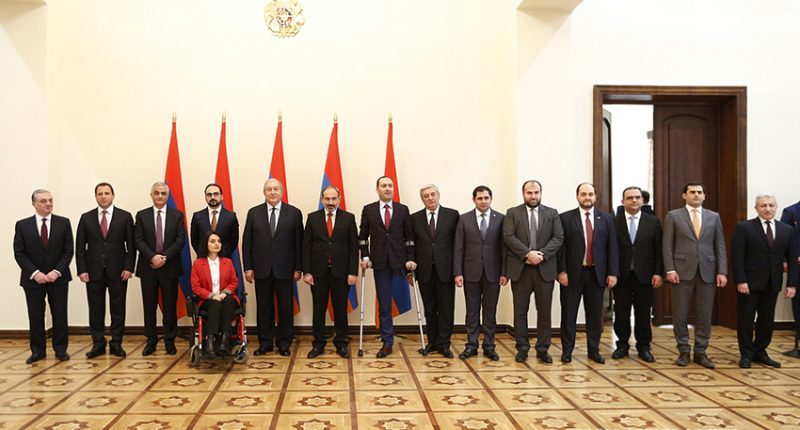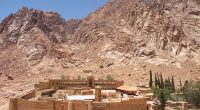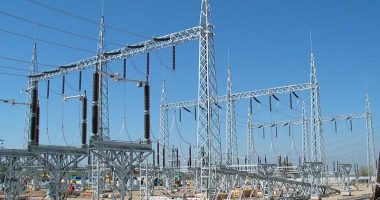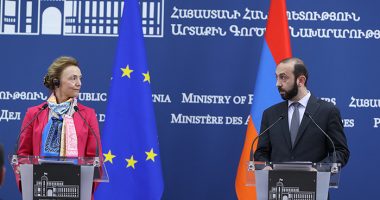YEREVAN — Prime Minister Nikol Pashinyan and 13 members of his cabinet took the oath of office on Wednesday at a ceremony led by President Armen Sarkissian.
Pashinyan first approached the podium to read out the text of the oath: “For the sake of achieving our national goals and strengthening the Motherland, I hereby swear to conscientiously fulfill my public duties, abide by the Constitution and laws of the Republic of Armenia, promote respect for the sovereignty and interests of the Republic of Armenia and live up to the high title a member of government.”
He was followed by the other members of the government who took turns being sworn in.
The reappointed Defense Minister Davit Tonoyan, Finance Minister Atom Janjughazian and Foreign Minister Zohrab Mnatsakanian are technocrats not affiliated with any party or bloc. The cabinet members who have kept their jobs also include senior My Step figures such as Education Minister Arayik Harutiunian and Local Government Minister Suren Papikian. Only one government member, Labor and Social Affairs Minister Zaruhi Batoyan, did not hold a ministerial post in the previous cabinet
Pashinyan is widely expected to abolish the posts of minister of agriculture, energy, culture, Diaspora, and sports and youth affairs as part of his plans to downsize the government. Their current — and presumably outgoing holders — have not been reappointed.
However, the precise structure of the new government remains unknown. Pashinyan has still not submitted a relevant bill to the Armenian parliament.
Speaking after the ceremony, Pashinyan made clear that Armenia’s police, National Security Service (NSS) and tax and customs services will remain directly accountable to the prime minister, rather than his cabinet or the parliament.
“State bodies must definitely be under a parliamentary oversight, but it doesn’t mean that they all must be turned into ministries,” he told reporters. He claimed that the police and the NSS could become “partisan” if they are turned into ministries.
These agencies were directly controlled by Armenia’s presidents under the previous, presidential system of government. Former President Serzh Sarkisian made sure that they will be subordinate to the prime minister when he enacted controversial constitutional changes that turned Armenia into a parliamentary republic.










